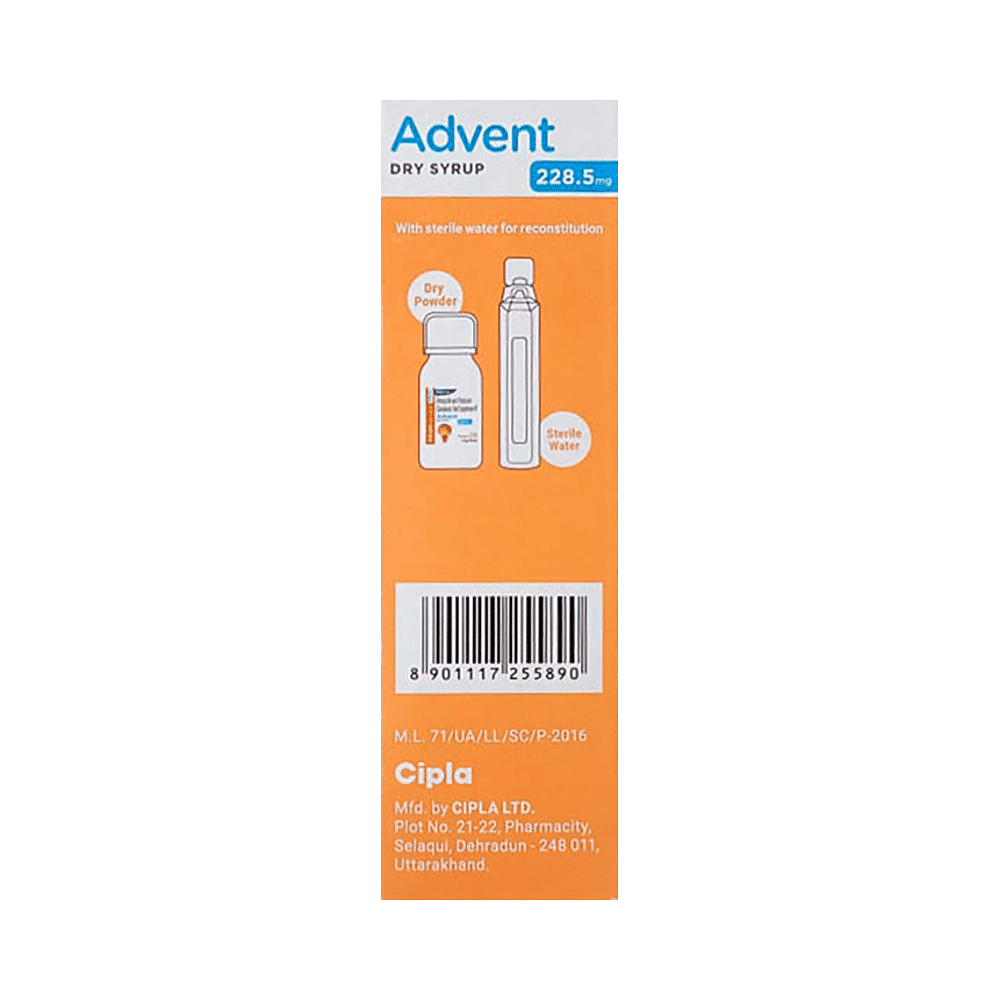
Claver Dry Syrup
Manufacturer
Zenon Healthcare Ltd
Salt Composition
Amoxycillin (200mg/5ml) + Clavulanic Acid (28.5mg/5ml)
Key Information
Short Description
Claver Dry Syrup is an antibiotic medicine that helps treat bacterial infections of the ear, nose, throat, chest, lungs, teeth, skin, and urinary tract.
Dosage Form
Dry Syrup
Introduction
Claver Dry Syrup is an antibiotic medicine that helps treat bacterial infections of the ear, nose, throat, chest, lungs, teeth, skin, and urinary tract. It is capable of killing bacteria that have become resistant to other therapies and thus also helps treat tuberculosis that is resistant to other treatments.
Directions for Use
Never give Claver Dry Syrup until and unless prescribed by the doctor. You must also never share your child’s medicine with anyone else even if they show similar symptoms.
How it works
Claver Dry Syrup is an antibiotic. It has two active agents amoxycillin and clavulanic acid. Amoxycillin works by preventing the formation of the bacterial protective covering (cell wall) essential for the survival of the bacteria. Whereas clavulanic acid serves a special purpose of inhibiting an enzyme (beta-lactamase) that is produced by resistant bacteria. This makes the combination of amoxycillin and clavulanic acid an effective line of treatment for many types of infections.
Quick Tips
Your child must complete the entire course of antibiotics. Stopping too soon may cause the bacteria to multiply again Encourage your child to drink plenty of water in case diarrhea develops as a side effect Never give Claver Dry Syrup until and unless prescribed by the doctor Do not give Claver Dry Syrup to treat common cold and flu-like symptoms caused by viruses Check ‘expiry’ before giving Claver Dry Syrup to your child. Immediately discard all the expired medicines Stop Claver Dry Syrup immediately if your child develops an itchy rash facial swelling or breathing difficulty. Report to the doctor without any delay
Related Medicines

Advent 228.5mg Dry Syrup Tangy Orange

Elmoclav Dry Syrup

Moximit CV Dry Syrup

Pelmox CV Dry Syrup

Jomoxlin Clav Dry Syrup

Amoxyoj CV Dry Syrup

Clavomost Dry Syrup

Zoxiclav Dry Syrup

Moxigap CV Dry Syrup

Clanex Dry Syrup
Frequently asked questions
Can other medicines be given at the same time as Claver Dry Syrup?
Claver Dry Syrup may interact with certain medications or substances. It's important to inform your child's doctor about any other medications they are currently taking before starting Claver Dry Syrup. Consult with their healthcare provider for guidance on safe medication combinations.
Can I get my child vaccinated while on treatment with Claver Dry Syrup?
Generally, antibiotics do not interfere with the ingredients in vaccines or cause a negative reaction in children who have recently received them. However, it's crucial to delay vaccination until your child recovers from the underlying illness. Once they feel better, you can administer the vaccine after consulting their doctor.
Which lab tests may my child undergo while taking Claver Dry Syrup on a long-term basis?
For children undergoing prolonged treatment with Claver Dry Syrup, periodic monitoring of kidney and liver function is usually recommended to assess the child's overall health.
Can I give a higher than the recommended dose of Claver Dry Syrup to my child?
Giving an increased dosage of this medication can potentially increase the risk of side effects. If your child experiences any worsening symptoms, consult their doctor for reevaluation.
Can I stop giving Claver Dry Syrup to my child when the symptoms are relieved?
No, you must not stop giving this medication unless it's complete as per your child’s prescribed treatment plan. Even if symptoms improve before the infection is fully cleared, continue taking the medicine for the entire course as it might still be beneficial.
Can the use of Claver Dry Syrup cause diarrhea?
Yes, Claver Dry Syrup can sometimes cause diarrhea. It's an antibiotic that fights harmful bacteria. Additionally, this medication may affect the healthy bacteria in your child’s stomach, leading to diarrhea. Encourage your child to drink plenty of fluids if they experience diarrhea. For persistent diarrhea and signs of dehydration (reduced urination, dark urine with a strong odor), consult their doctor before administering any other medicine.
Do all viral common colds result in secondary bacterial infection?
While most viral common colds don’t lead to bacterial infections, it's best to avoid antibiotics unless specifically advised by a healthcare professional. They are most effective against bacteria and can be harmful for viral infections.
The mucus coming out of my child’s nose is yellow-green. Is it a sign of a bacterial infection?
A yellow or green color in your child's nose during a common cold isn't necessarily a sign of a bacterial infection, even though some bacteria can be present in the nasal mucus during a viral illness like this. It's normal for mucus to thicken and change color as it does during a common cold. It usually resolves within 7-10 days.
Is there any sign which shows that my child needs immediate medical attention?
In case of serious allergic reactions (breathing difficulties, skin rashes), gastrointestinal infections (diarrhea), or liver damage (weakness, paleness, vomiting), it's crucial to contact your child's doctor immediately. Though rare, these side effects are potentially life-threatening and require immediate medical attention.


